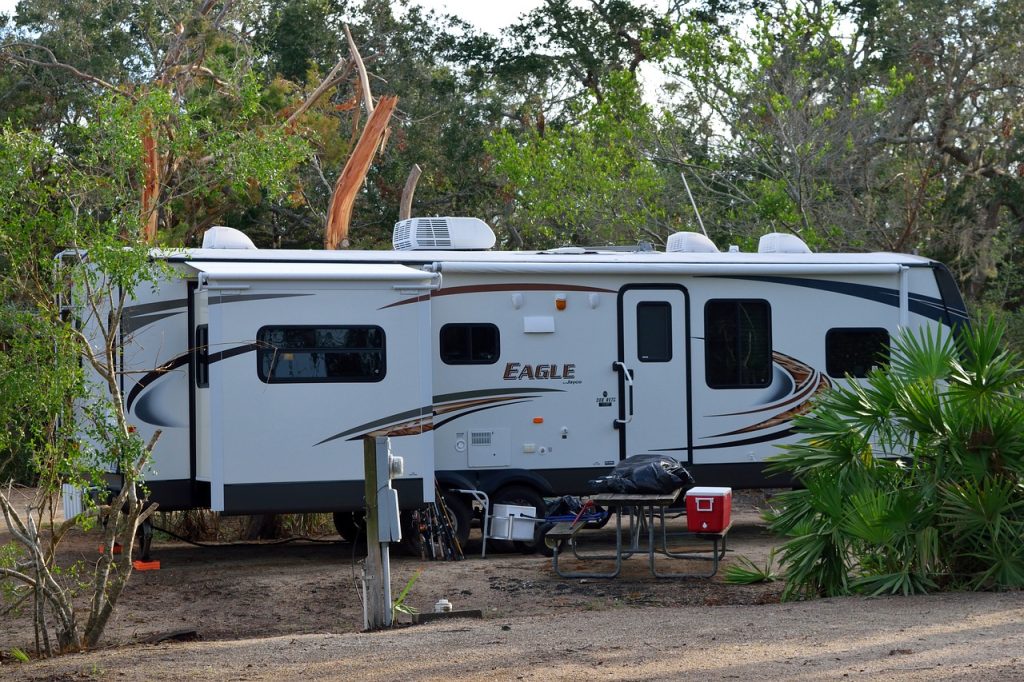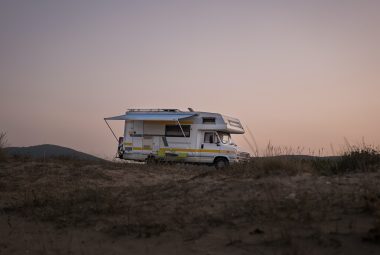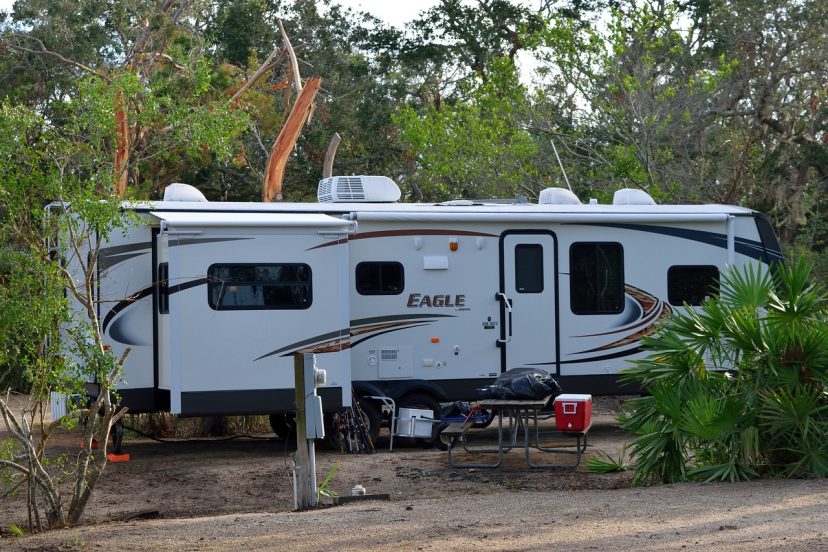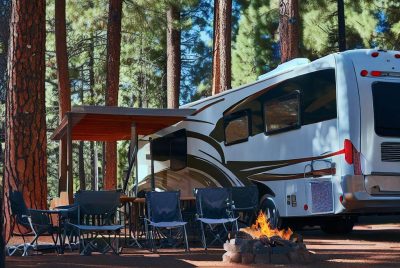What to Expect with RV Parks Monthly Rates
As an avid RV enthusiast, I understand the importance of finding RV Parks monthly rates that fit your budget and offer a comfortable stay. When it comes to long-term RV camping, considering the monthly rates becomes crucial. In this article, I will guide you through what to expect with RV park monthly rates and provide helpful suggestions to ensure you make the most informed decision for your journey. So, let’s dive in!
Understanding RV Parks
RV parks, also known as campgrounds or caravan parks, are designated areas that offer amenities and facilities specifically catered to recreational vehicle enthusiasts. These parks provide spaces for RVs to park and often include hookups for water, electricity, and sewer connections. They can range from simple grassy areas to well-equipped resorts with various amenities such as swimming pools, laundry facilities, Wi-Fi access, and more.

Benefits of RV Park Monthly Rates
One of the primary advantages of opting for monthly rates at RV parks is cost-effectiveness. Compared to daily or weekly rates, monthly rates tend to offer significant savings, making them an attractive option for long-term travelers. By committing to a longer stay, you can enjoy a reduced nightly rate, allowing you to stretch your budget further.
Moreover, choosing monthly rates provides stability and peace of mind. It eliminates the hassle of searching for a new campground every few days, offering a sense of belonging and community among fellow RV enthusiasts. It also allows you to establish a routine and explore the surrounding area at a more leisurely pace.
Factors Influencing RV Park Monthly Rates
Several factors influence the monthly rates at RV parks. Understanding these factors will help you make an informed decision and manage your expectations. Here are a few key considerations:
Location: The location of the RV park plays a significant role in determining the monthly rates. Parks situated in popular tourist destinations or areas with high demand tend to have higher rates compared to those in less sought-after locations.
Seasonality: Just like any other travel accommodation, RV parks may have peak and off-peak seasons. During peak seasons, such as summer or holidays, rates may be higher due to increased demand. Off-peak seasons often offer more affordable rates.
Park Amenities: The amenities provided by the RV park can impact the monthly rates. Parks with extensive facilities like swimming pools, playgrounds, on-site activities, and entertainment options may charge higher rates to cover the maintenance and operational costs.
Park Services: Additional services such as Wi-Fi access, cable TV, laundry facilities, pet-friendly areas, and concierge services can influence the monthly rates. Parks offering more services typically have higher rates.
Site Size and Hookups: The size of the RV site and the availability of full hookups (water, electricity, and sewer connections) can affect the monthly rates. Larger sites and sites with full hookups generally command higher prices.
Finding Affordable RV Parks
When searching for affordable RV parks with reasonable monthly rates, consider the following tips:
Research: Utilize online platforms, RV forums, and campground directories to gather information about RV parks in your desired locations. Read reviews, ratings, and testimonials to gauge the experiences of fellow RVers.
Compare Rates: Compare the monthly rates of different RV parks in the area you plan to visit. Look for parks that offer competitive pricing without compromising on essential amenities and services.
Off-Peak Travel: Consider traveling during off-peak seasons to take advantage of lower rates. Not only will you save money, but you’ll also enjoy a quieter and less crowded camping experience.
Negotiation: Don’t hesitate to negotiate the rates with the RV park management, especially if you plan on an extended stay. Many parks are open to negotiations, and you may secure a better deal by communicating your needs and expectations.
Extended Stay Discounts: Inquire about any special discounts or promotions available for long-term stays. Some RV parks offer discounted rates for stays longer than a month, providing additional savings.
Tips for Negotiating RV Park Rates
When it comes to negotiating rates at RV parks, follow these tips for a successful outcome:
Be Polite and Respectful: Approach negotiations with a friendly and respectful attitude. Remember, RV park owners and managers are more likely to consider your requests if you maintain a positive demeanor.
Highlight Your Long-Term Stay: Emphasize your intention to stay at the park for an extended period. This demonstrates your commitment and may increase your chances of securing a discounted rate.
Mention Your RV Type and Size: If you own a smaller RV or require fewer amenities, let the park management know. Smaller RVs may have more flexibility in terms of site placement, which can be advantageous during negotiations.
Offer to Pay Upfront: If your financial situation allows, offer to pay for your entire stay upfront. This gesture shows your seriousness and may incentivize the RV park to offer a discounted rate.
Consider Non-Peak Periods: If possible, plan your stay during non-peak periods. This not only increases the likelihood of negotiating a better rate but also provides a quieter and more relaxed camping experience.
Evaluating RV Park Amenities and Services
When selecting an RV park, carefully evaluate the amenities and services offered to ensure they align with your preferences and requirements. Consider the following factors:
Utilities: Check if the park provides reliable water, electricity, and sewer hookups. Additionally, inquire about the quality and consistency of these utilities to avoid any inconveniences during your stay.
Recreational Facilities: Assess the availability and condition of the facilities such as swimming pools, fitness centers, playgrounds, and game rooms. These amenities can greatly enhance your overall camping experience.
Internet and Connectivity: If staying connected is important to you, inquire about the Wi-Fi availability, speed, and reliability within the park. Reliable internet access allows you to work remotely, stream entertainment, and stay in touch with loved ones.
Laundry and Shower Facilities: Consider the cleanliness and accessibility of the park’s laundry and shower facilities. Clean and well-maintained amenities contribute to a comfortable and enjoyable stay.
Pet-Friendly Policy: If you’re traveling with pets, confirm that the RV park has designated pet-friendly areas and facilities. Additionally, check if there are any breed or size restrictions and inquire about nearby pet-friendly attractions.
Assessing RV Park Location
 The location of an RV park can greatly impact your overall experience. Here are some things to consider when assessing the park’s location:
The location of an RV park can greatly impact your overall experience. Here are some things to consider when assessing the park’s location:
Proximity to Attractions: Determine the distance between the RV park and local attractions, such as national parks, beaches, hiking trails, or popular tourist spots. Being close to these attractions can save you time and transportation costs.
Accessibility: Assess the accessibility of the park, considering factors such as road conditions, ease of maneuvering large RVs, and nearby amenities like grocery stores, gas stations, and medical facilities.
Natural Surroundings: Take into account the natural surroundings of the park. Whether you prefer a mountain view, beachfront access, or a serene countryside setting, choose a location that aligns with your preferences.
Climate Considerations: Research the climate of the area where the RV park is located. Ensure that the weather conditions are suitable for your desired activities and comfort level throughout your stay.
Noise Levels: Consider the noise levels in and around the park. If you prefer a peaceful and quiet camping experience, look for parks located away from busy roads, railways, or airports.
Safety and Security Considerations for RV Parks
When staying at an RV park, prioritizing safety and security is essential. Keep the following considerations in mind:
Security Measures: Ask about the security measures implemented by the RV park, such as gated entrances, surveillance cameras, and on-site security personnel. These measures contribute to a safer environment.
Lighting: Adequate lighting throughout the park is crucial for both safety and convenience, especially during nighttime. Ensure that the park has well-lit pathways, common areas, and RV sites.
Emergency Services: Familiarize yourself with the availability of emergency services in the vicinity of the RV park. Know the location of the nearest hospital, fire station, and police station for peace of mind.
Park Rules and Regulations: Review the park’s rules and regulations to understand any specific safety protocols or guidelines. This may include restrictions on open fires, speed limits within the park, or quiet hours.
Neighborhood Safety: If possible, research the safety reputation of the neighborhood surrounding the RV park. Look for information on crime rates, local safety initiatives, and community involvement.
Reviews and Recommendations
Reading reviews and seeking recommendations from fellow RVers can provide helpful insights into the quality of RV parks. Consider the following sources:
Online Platforms: Browse websites, forums, and social media groups dedicated to RVing to find reviews and recommendations from other travelers. Pay attention to both positive and negative feedback to gain a comprehensive understanding.
Word of Mouth: If you have RVing friends or acquaintances, reach out to them for recommendations based on their personal experiences. They may offer valuable tips and suggestions for RV parks that align with your preferences.
Local Visitor Centers: Contact local visitor centers or tourism offices in your desired destination. They can provide information about popular RV parks in the area and any notable considerations to be aware of.
RV Clubs and Associations: Many RV clubs and associations offer member-exclusive resources and recommendations for RV parks. Consider joining these organizations to gain access to their knowledge and expertise.
RV Park Websites: Visit the official websites of RV parks you are interested in. Explore their testimonials, guest reviews, and ratings to understand the experiences of previous visitors.
Long-Term Stay Guidelines
When planning for a long-term stay at an RV park, keep the following guidelines in mind:
Reservation Policy: Some RV parks have a limited number of long-term stay spots. Therefore, it is advisable to make reservations well in advance to secure your preferred site.
Stay Duration: Check the park’s policy on maximum stay duration. While many parks allow long-term stays of several months or even year-round, some may have restrictions on extended stays.
Cancellation Policy: Understand the park’s cancellation policy in case you need to alter your travel plans. Knowing the rules in advance can help you avoid any financial penalties.
Lease Agreement: For extended stays, some RV parks may require a lease agreement. Review the terms and conditions carefully, ensuring that they align with your expectations and needs.
Flexibility: Maintain a degree of flexibility during your long-term stay. While you may have a preferred RV park in mind, being open to alternative options can provide more opportunities and potentially better rates.
Maintaining Flexibility
While long-term RV stays offer stability, it’s important to maintain flexibility. Here’s why:
Exploring New Destinations: The beauty of RV travel lies in the freedom to explore new destinations. By remaining flexible, you can seize unexpected opportunities and discover hidden gems along your journey.
Seasonal Variations: Different seasons offer unique experiences and natural wonders. By embracing flexibility, you can adapt your travel plans to take advantage of seasonal events, festivals, or wildlife sightings.
Adapting to Change: Life on the road can be unpredictable. Circumstances may arise that require you to alter your travel plans. Flexibility allows you to adapt to changes without undue stress or inconvenience.
Meeting Fellow RVers: Being open to change can lead to memorable encounters with fellow RVers. Embracing flexibility allows you to connect with other travelers, share experiences, and forge new friendships.
Avoiding Burnout: Staying in one location for an extended period may lead to restlessness or burnout. By incorporating flexibility into your travel plans, you can break the monotony and rejuvenate your sense of adventure.
Budgeting and Cost Savings
To make the most of RV park monthly rates and optimize your budget, consider the following cost-saving strategies:
Cooking Meals: Take advantage of your RV’s kitchen facilities to prepare meals instead of eating out frequently. This can significantly reduce your food expenses over the course of your stay.
Bulk Purchases: Consider purchasing groceries and supplies in bulk to take advantage of lower prices. This is especially beneficial if you plan to stay in one spot for an extended period.
Discount Clubs and Memberships: Join discount clubs, such as Good Sam Club or Passport America, that offer reduced rates at participating RV parks. These memberships can provide significant savings on monthly rates.
Utilities Conservation: Be mindful of your water and electricity usage to avoid unnecessary expenses. Conserve resources by taking shorter showers, turning off lights when not in use, and using energy-efficient appliances.
Traveling in Off-Peak Times: As mentioned earlier, traveling during off-peak seasons can result in substantial cost savings. Take advantage of lower rates and discounted offers available during quieter travel periods.
When considering RV park monthly rates, it’s essential to thoroughly research, compare, and evaluate your options. Understanding the factors that influence pricing, negotiating when possible, and aligning the amenities and services with your needs will help you find the best RV park for your long-term stay. Whether you own your own a top RV brand or rent an RV for a month or more, remember to stay flexible, budget wisely, and prioritize safety and security to make your RV camping experience enjoyable and cost-effective.
FAQs
Q: Are RV park monthly rates cheaper than daily or weekly rates?
A: Yes, in most cases, RV park monthly rates offer significant savings compared to daily or weekly rates. Opting for a long-term stay can be more cost-effective.
Q: Can I negotiate the monthly rates at RV parks?
A: Yes, many RV parks are open to negotiation, especially for long-term stays. It’s worth discussing your needs and expectations with the park management to secure a better rate.
Q: What amenities should I prioritize when choosing an RV park for a long-term stay?
A: Essential amenities to consider include reliable utilities, recreational facilities, internet connectivity, laundry and shower facilities, and a pet-friendly policy. Prioritize amenities based on your preferences and requirements.
Q: Can I work remotely from an RV park?
A: Yes, many RV parks offer Wi-Fi access and conducive environments for remote work. However, it’s important to inquire about the quality and reliability of the internet connection before making your decision.
Q: How far in prior to my trip should I make reservations for a long-term stay at an RV park?
A: It’s advisable to make reservations as early as possible, especially if you have a preferred RV park in mind. Some parks have limited long-term stay spots, and securing a reservation in advance ensures availability.
Remember, planning ahead, researching thoroughly, and remaining flexible will allow you to make the most of your RV park experience while enjoying affordable monthly rates. Happy travels!




Comments are closed.